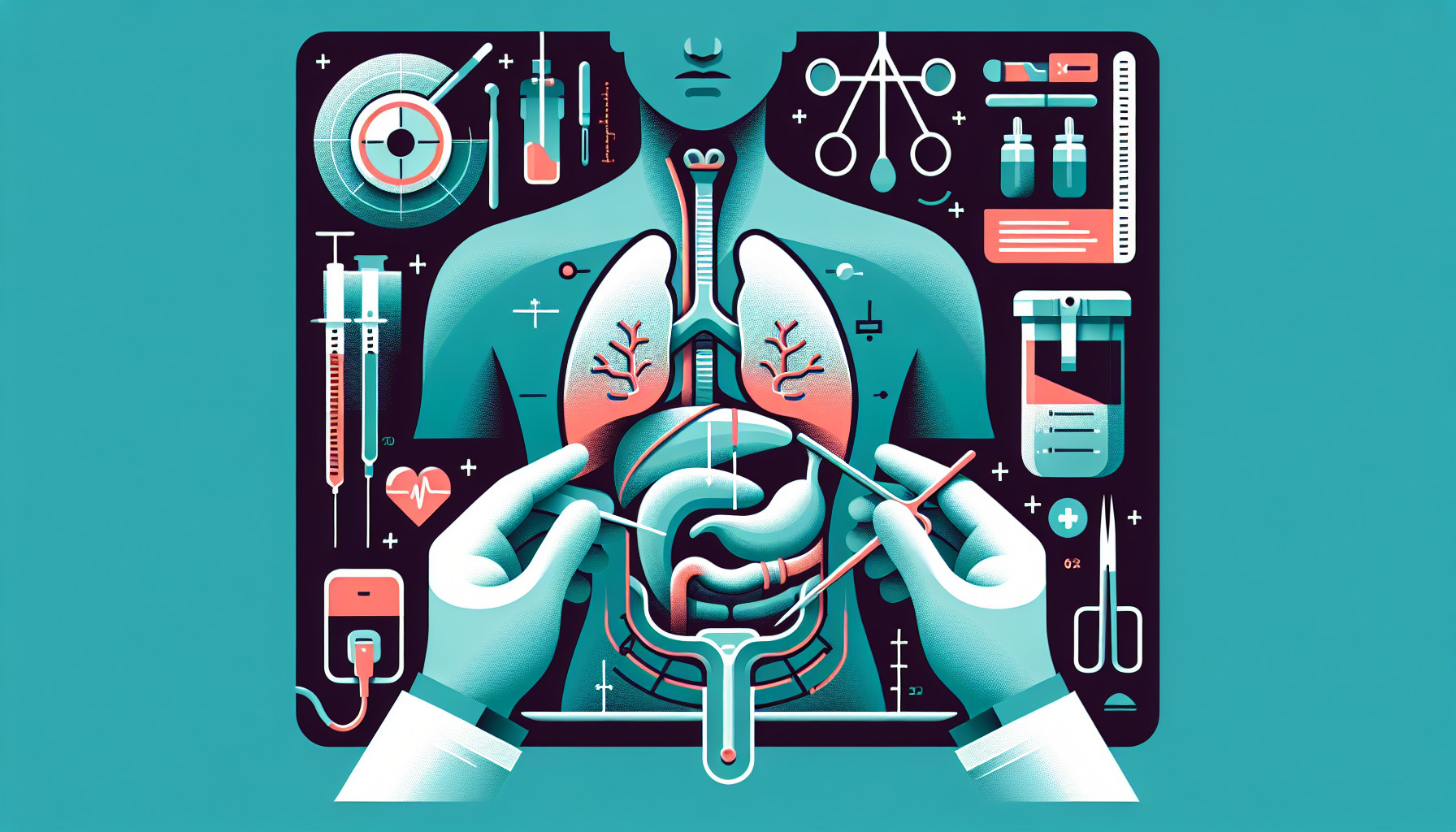Our Summary
This research paper looks at the survival rates of patients who have had a pancreas transplant after a kidney transplant (PAK), as compared to those who have had both a pancreas and kidney transplant at the same time (SPK). The authors analyzed data from the Organ Procurement and Transplantation Network from 1995 to 2010.
The study found that patients who had a PAK, whether the kidney was from a living or deceased donor, had a better survival rate for the kidney transplant compared to patients with type 1 diabetes who only received a kidney. The best survival rates were seen in patients who received a kidney from a living donor followed by a PAK.
Additionally, the survival rate of the pancreas transplant was better in patients who received a kidney from a living donor compared to a deceased donor. Patients who received both a kidney and pancreas transplant had better survival rates compared to patients who were on the waiting list for both transplants but had not received them.
Overall, the study suggests that having a pancreas transplant after a kidney transplant can improve the survival rate of the kidney transplant and offers a survival advantage for patients compared to those who don’t receive any transplant.
FAQs
- Does having a pancreas transplant after a kidney transplant improve the survival rate of the kidney transplant?
- Does the source of the kidney (living or deceased donor) impact the survival rate of a pancreas transplant?
- Are survival rates better for patients who receive both a kidney and pancreas transplant compared to those who are on the waiting list for both transplants?
Doctor’s Tip
One helpful tip a doctor might give a patient considering a pancreas transplant is to discuss the option of also receiving a kidney transplant at the same time (SPK) if they have kidney dysfunction. This combination transplant has been shown to have better survival rates compared to just receiving a pancreas transplant alone. It is important for patients to consider all their options and discuss with their healthcare team to determine the best course of action for their individual situation.
Suitable For
Patients who are typically recommended for a pancreas transplant include individuals with type 1 diabetes who have end-stage renal disease and are already undergoing or have undergone a kidney transplant. This may include patients who have severe complications from diabetes, such as frequent hypoglycemic episodes, diabetic ketoacidosis, or poor glycemic control despite intensive insulin therapy. Additionally, patients with type 1 diabetes who are at high risk for severe hypoglycemia or have difficulty managing their diabetes may also be considered for a pancreas transplant.
Patients who have had a kidney transplant and are experiencing complications related to their diabetes, such as diabetic nephropathy or recurrent kidney infections, may also be recommended for a pancreas transplant. These patients may benefit from improved glycemic control and reduced risk of diabetic complications following a pancreas transplant.
Overall, candidates for pancreas transplant are carefully evaluated by a multidisciplinary team of transplant specialists to determine if they are suitable candidates for the procedure. Factors such as overall health, medical history, and ability to comply with post-transplant care and medication regimens are taken into consideration when recommending a pancreas transplant for a patient.
Timeline
Before a pancreas transplant:
- Patient undergoes evaluation and screening process to determine eligibility for transplant
- Patient is placed on the transplant waiting list
- Patient may wait for an extended period of time for a suitable donor
- Once a suitable donor is found, patient undergoes surgery to receive the pancreas transplant
After a pancreas transplant:
- Patient will be closely monitored in the hospital for complications and to ensure the transplant is successful
- Patient will need to take immunosuppressive medications to prevent rejection of the new organ
- Patient will need to follow a strict medication regimen and attend regular follow-up appointments with their transplant team
- Patient may experience complications or side effects from the transplant, such as infection or organ rejection
- Over time, patient will hopefully experience improved blood sugar control and quality of life with a functioning pancreas transplant.
What to Ask Your Doctor
- What are the potential risks and complications associated with a pancreas transplant?
- How long is the recovery process after a pancreas transplant?
- How will a pancreas transplant affect my overall quality of life?
- What medications will I need to take after the transplant, and what are the potential side effects?
- How often will I need to follow up with my transplant team after the procedure?
- What is the success rate of pancreas transplants at this hospital or transplant center?
- Are there any lifestyle changes I need to make after the transplant?
- How will a pancreas transplant affect my diabetes management?
- What is the wait time for a pancreas transplant, and how will I be prioritized on the transplant list?
- Are there any alternative treatments or therapies I should consider before pursuing a pancreas transplant?
Reference
Authors: Fridell JA, Niederhaus S, Curry M, Urban R, Fox A, Odorico J. Journal: Am J Transplant. 2019 Mar;19(3):823-830. doi: 10.1111/ajt.15106. Epub 2018 Oct 4. PMID: 30188614
